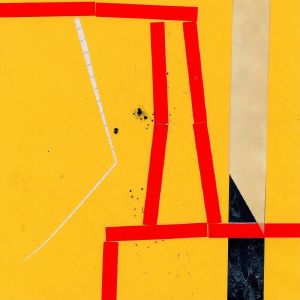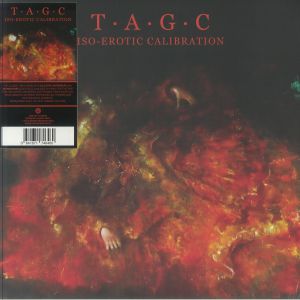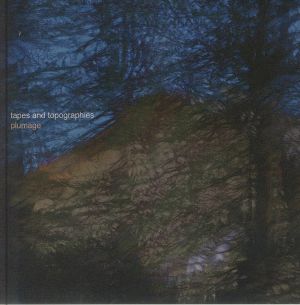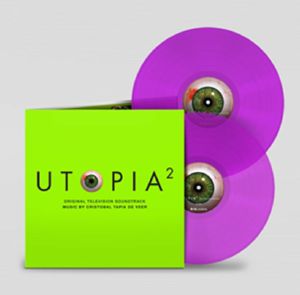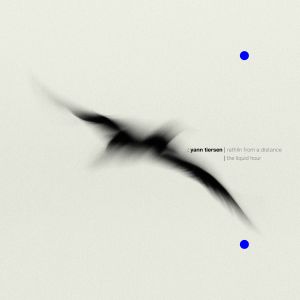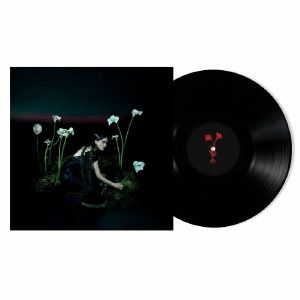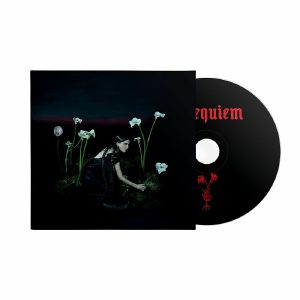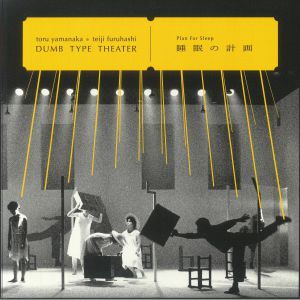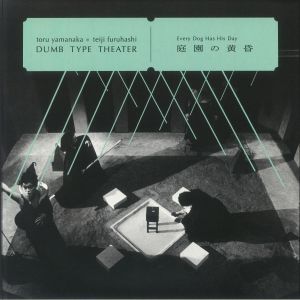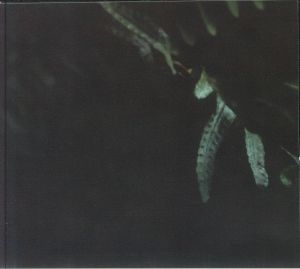Filter
Genre
在庫状況
アーティスト
レーベル
Featured
リリースタイトル
値段
Back catalogue: Leftfield
Juno's full catalogue of Leftfield
シングル
Review: The Tetine trio started writing and composing together in the lockdowns of 2020 - no doubt observing all the arcane rules about hands, face and space as they did so. They have an intuitive style that now translates to this record which was written for cello, voice, piano, organ and electronics and was born as "a respiratory, meditative, and improvisatory piece of DIY tropical-mutant-punk "chamber music". They have succeeded in their mission to subvert here with plenty of subtle background sounds bleeding in from the nearby street as themes such as hearing loss, menopause, pollution and respiration all come up.
… Read more in stock $16.63
アルバム
RE: Case Studies (LP limited to 200 copies)
Cat: DAUW 074LP. Rel: 07 May 25
Review: Taylor Deupree and The Humble Bee have hooked up for their first collaborative album, Re: Case Studies, an immersive and pensive ambient beauty. It was originally conceived as a solo project and Deupree's abstract feedback loop-based compositions were shelved until discussions with the label prompted him to invite a collaborator. Craig Tattersall, aka The Humble Bee, responded with his own sonic interpretations and built on Deupree's foundations. The result is a cohesive yet distinct collaboration that honours the original while evolving into something new so what began as an unfinished idea is now a full-fledged and thoughtful, layered exploration of sound.
… Read more in stock $31.84
Review: This reissued gem offers meticulously crafted aural rituals that delve into sensual electronic music and human sexuality. Founded by Adi Newton in 1978 to merge art, science and sonology while embracing innovative, multidisciplinary approaches, The Anti Group served as a platform for exploring psycho-acoustic research and this 1994 album was recorded over three years. It is among their more accessible works - never more so than now when it debuts on vinyl after 30 years. As well as the original pieces, it comes with four bonus tracks including a film soundtrack and a remix.
… Read more in stock $24.53
Plumage (hand-numbered CD limited to 80 copies)
Cat: LONTANOSCD 44. Rel: 05 Aug 24
Review: Astonishingly, a decade has now passed since Todd Gauthreaux first donned the Tapes & Topographies guise. Since then, he has released countless inspired and immersive albums, offering up an attractive ambient sound rich in drifting chords, densely layered sound design and contemplative musical motifs. Plumage, his first full-length excursion of 2024, sees him pop up on ROHS! for the first time. He's typically delivered the goods, matching ocean-deep ambient soundscapes with slow burning, melancholic melodies, evocative flashes of field recordings, hazy aural textures and twinkling, occasionally sorrowful, piano solos. It's arguably one of his most accessible and aurally striking sets to date - not bad for someone whose output has been consistently excellent for some time.
… Read more in stock $7.33
Utopia 2 (Soundtrack) (limited gatefold translucent violet vinyl 2xLP)
Cat: SILLP 1463V. Rel: 15 Apr 25
Review: British conspiracy thriller Utopia follows a group of young adults who, after discovering a mysterious comic book - The Utopia Experiments - embark on a manic quest for corporate restitution and prophetic fulfilment. As a shadowy government organisation detects their plans and resolves to track their every move, we watch an empathic but deadly game of cat-and-mouse; and Cristobal Tapia de Veer's acclaimed score only heightens the tension. This new 2xLP edition includes such instantly recognisable motifs as 'Brainwave Playground', 'Satan's Waltz' and 'The Monarch's Pyramid', capturing the series' eerie and intense atmosphere. The score continues to resonate to this day, following Tapia de Veer's success with The White Lotus and Babygirl.
… Read morePlayed by: Juno Recommends Leftfield
in stock $43.40
Rathlin From A Distance/The Liquid Hour (2xLP with obi-strip (indie exclusive))
Cat: STUMM 514. Rel: 03 Apr 25
Review: Breton artist Yann Tiersen's new album is divided into two distinct parts, each with its own identity. Rathlin from a Distance features eight introspective piano pieces named after locations Tiersen visited during his 2023 sailing tour, such as the Fastnet Lighthouse and the Faroe Islands. The music evokes introspection and tranquillity throughout and creates a meditative atmosphere that makes a lasting and cathartic impact. In contrast, The Liquid Hour is an expansive blend of electronic and psychedelic rhythms born from Tiersen's reflections on political and social change during his time at sea. The section's haunting melodies and Emilie Quinquis' vocals make a great counter to part one.
… Read more in stock $34.94
Review: The second album from Stefano Ghittoni and Bruno Dorella following 2019's Estatico. The duo again explores a rich soundscape blending experimental techniques with elements from both popular and underground music. Beginning with ethereal electroacoustic tones, the album evolves with delicate rhythms, arpeggiations and broken beats that cook up a moody, introspective atmosphere. Textural depth comes from the well worked samples, tape manipulations, field recordings and other unconventional sounds that are all seamlessly interwoven with traditional instruments. Drawing from electronic experimentation, psychedelic minimalism and shoegaze, this is a complex, immersive beauty.
… Read more in stock $40.57
Review: Brighton-based Australian vocalist, multi-instrumentalist, and producer Penelope Trappes drops her fifth full length album and invites us on a bare bones, spiritual journey. Making herself incredibly vulnerable in the process, these are the kind of tracks that induce meditative and psychedelic trains of thought, haunting and beautiful, blissful and tense. Cello drones, gothic aesthetics, a king of futurist folk, at least some of the inspiration for which has come from time spent in isolated corners of Scotland. You can almost feel the wind blowing through the room as A Requiem lures and entices, breaks and mends hearts. Ambient, neo-classical, trance inducing works of wonder. This is the kind of record that can help make you see the world for what it is, and realise just how lucky we are to be here at the same time.
… Read more in stock $26.22
Review: London-based Australian vocalist, producer and multi-instrumentalist Penelope Trappe has always made immersive, enveloping and deeply atmospheric that sidesteps convention. It was that uniquely haunting and emotive approach to ambient and electronica that earned her deals with Optimo Music and Houndstooth, amongst others. Now signed to One Little Independent, Trappes has pushed the boat out further on Requiem, a mournful and bittersweet musical meditation in which her distinctively sweet-but-drowsy vocals rise above manipulated cello textures, hushed field recordings, ambient textures and intriguing electronic sounds aplenty. It's bold, beautiful and at times breathtakingly brilliant, once again marking Trappes out as an artist with a genuinely unique musical vision.
… Read more in stock $11.84
Plan For Sleep (remastered) (LP + insert + MP3 download code)
Cat: CONATALA 006. Rel: 03 Dec 24
Review: Dumb Type Theater have been at the forefront of Japan's performance art landscape since 1984, although the years between then and now have seen some significant changes - culturally and in terms of the group. The death of Teiji Furuhashi, one of the central members, is just one example. A pivotal player in performances, he was often tasked with translating the instrumentation and arrangements of musician Toru Yamanaka into on-stage directions. Removed from that context, Yamanaka and Furuhashi's sounds still work incredibly well. There are aspects of Plan For Sleep that evoke the US avant garde of the time, perhaps reiterating the fact that the late-20th Century saw a closing of distances and a shared vision of where the future was heading among broad communities. Sound art, in the most musical and listenable sense.
… Read more in stock $29.87
Every Dog Has His Day (remastered) (LP + insert + MP3 download code)
Cat: CONATALA 007. Rel: 03 Dec 24
Review: It's not hard to see just how ahead of their time Dumb Type were. And still are. Founded in Kyoto, Japan, in 1984, the artist collective looked to interpret and portray the changes they could see beginning to happen around them in society - specifically the start of the (information) technology age. Presenting work that took a dark and cynical view of the increasing importance and prevalence of equipment and digital in the every day, they do this though art exhibitions, performances and publications. Audiovisual installations have always been particularly prominent, and Every Dog Has His Day - one of two Dumb Theater albums previously only available on tape, now issued on vinyl for the first time - makes it clear music was never an afterthought. Credited to Toru Yamanaka, who wrote much of their heard work, and the late Teiji Furuhashi, who translated that onto stage, it's an avant garde essential.
… Read more in stock $25.92
Jade (hand-numbered CD + download code limited to 200 copies)
Cat: ZD 034. Rel: 15 Nov 24
Review: Past Inside The Present label head and ambient powerhouse zake and Tyresta follow up their recent and well-received The Worlds We Leave Behind with Jade, a companion album that expands on previous themes in three long-form tracks. It's a deep blending of pregnant drones and delicate details that is typically organic and analogue. 'Jade No. 1' layers analogue textures that make for a comforting, melancholic embrace, while 'Jade No. 2' features more fractured melodies and natural sounds that bring a sense of peace and calm. The third cut, 'Waiting For the Light,' is a lofty one with soft synths and orchestral gravitas that with the other two pieces make for a contemplative and reflective listen.
… Read morePlayed by: Juno Recommends Ambient/Drone
in stock $12.96

 USD
USD







